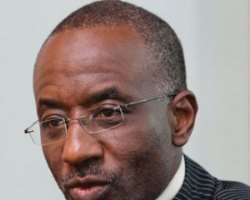CBN's Cashless Policy Takes Off In Abuja, 5 More States

The Central Bank of Nigeria will today commence the second phase of its cashless policy in five more states and Abuja.
With the commencement of the new policy, aimed at reducing the money in circulation, charges will be applied on withdrawals and deposits above N500,000 for individuals and N2 million for corporate bodies.
The five states affected are Anambra, Abia, Kano, Ogun and Rivers.
Central Bank Governor Sanusi Lamido Sanusi, while speaking on the issue, said the policy will not affect people who carry out petty transactions but those who usually handle bulk cash.
He told students of the Financial Literacy School Outreach Programme, Junior Secondary School Maitama, yesterday, that the policy is not about banning the use of currency as people think, but to encourage people to use the electronic means of payment in order to reduce the danger and waste in handling raw cash.
Reacting to how the CBN will manage cashless policy in villages, the governor said, 'In villages, a bank can have an agent, he may be somebody that sells recharge card and he will be able to open an account for you, you can make deposits to him and make withdrawals with PoS terminals.'
The cashless policy was extended from July to October in these states to give room for extensive sensitization of customers.
Meanwhile, Sanusi has said his priority after retirement is to go back to the classroom and teach.
Speaking yesterday when he launched the Financial Literacy School Outreach Programme at the Junior Secondary School, Maitama, Sanusi said the last time he taught in a classroom was in 1981 when he was doing his NYSC programme in Yola but still likes the profession.
'I started my career as a secondary school teacher, then a teacher in the university, a banker, and then the central bank governor. But one think I'ld like is to be a teacher for life.'
He told the students that the motive behind the financial literacy campaign by the Central Bank was to make the people know their rights and obligations in the financial dealings in the country.
Sanusi urged the students to be patient, disciplined and always plan before they spend the little they have.
He said, 'the more you spend, the more you make other people rich and make yourself poorer,' urging them to imbibe the saving culture.
